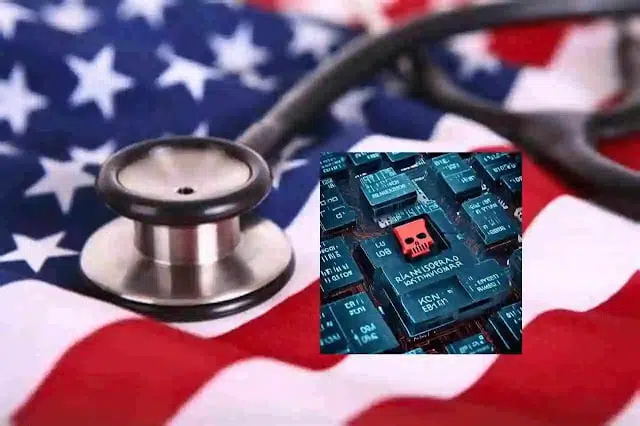For Regular Latest Updates Please Follow Us On Our WhatsApp Channel Click Here
Last updated on October 7th, 2024 at 02:26 am
A Cyberattack on Change Healthcare Disrupts US HealthCare
Change Healthcare Confirms the Attack
On February 21, 2024, Change Healthcare acknowledged a cyberattack perpetrated by a cybercrime group identified as ALPHV/BlackCat. The company stated they are actively addressing the issue, collaborating with law enforcement agencies and cybersecurity experts to investigate and mitigate the impact.
Widespread Disruptions Reported
For Regular Latest Updates Please Follow Us On Our WhatsApp Channel Click Here
The attack has caused widespread disruption to various critical healthcare processes. Hospitals and pharmacies have reported difficulties fulfilling and processing prescriptions due to malfunctioning systems reliant on Change Healthcare’s services. This has created delays and inconveniences for patients seeking essential medications.

ALPHV/BlackCat Claims Responsibility
ALPHV/BlackCat, a Russia-based ransomware group known for their aggressive tactics, claimed responsibility for the attack on their dark web leak site. They asserted they stole sensitive health information from millions of Americans, although these claims haven’t been independently verified.
Understanding Change Healthcare’s Role in US HealthCare
Change Healthcare plays a crucial role in the US healthcare system, handling a significant portion of the nation’s healthcare transactions, as one of the country’s largest processors of prescription medication claims, they manage prescriptions and billing for over 67,000 pharmacies. This vast network facilitates the smooth functioning of medication access for countless patients.
Ongoing Investigation and Response Efforts
UnitedHealth emphasizes that investigations haven’t indicated any compromise of Optum, UnitedHealthcare, or UnitedHealth Group systems besides those of Change Healthcare. Additionally, they confirm ongoing efforts to comprehend the potential impact on patients, healthcare providers, and other stakeholders.
Concerns and Potential Consequences
This recent attack raises significant concerns about the vulnerabilities of the US healthcare system to cyberattacks. Potential consequences include:
Disruptions in patient care: Delays in accessing medications due to system outages can directly impact patient health and well-being.
Data breaches and privacy concerns: If true, the alleged theft of sensitive health information by ALPHV/BlackCat poses a serious threat to patient privacy and could lead to identity theft or other malicious activities.
Reputational damage and financial losses: Healthcare institutions might face reputational damage due to the attack and incur financial losses associated with recovery efforts and potential lawsuits.
The Road Ahead: Strengthening US Health Care Cybersecurity
This incident highly underscored the critical need for increased cybersecurity measures within the US healthcare system. Potential steps towards achieving this goal include:
Investing in robust cybersecurity infrastructure: Healthcare institutions must prioritize upgrading their security systems and implementing advanced preventative measures against cyber threats.
Heightened awareness and training: Regular training programs are essential for healthcare personnel to recognize and respond to potential cyber threats effectively.
Collaboration between public and private sector: Collaboration between healthcare providers, government agencies, and cybersecurity experts is crucial to develop comprehensive strategies for safeguarding the health information of patients and the overall healthcare system.
Conclusion
The ongoing cyberattack on Change Healthcare highlights the vulnerability of the US healthcare system and the potential consequences for patients, providers, and the entire industry. Addressing this issue necessitates a multi-pronged approach, encompassing robust cybersecurity infrastructure, comprehensive training, and collaborative efforts to ensure the continued security and well-being of patients. By prioritizing these measures, the US health care system can become more resilient against future cyberattacks and continue to deliver quality care to its patients.
For Regular Latest Updates Please Follow Us On Our WhatsApp Channel Click Here
